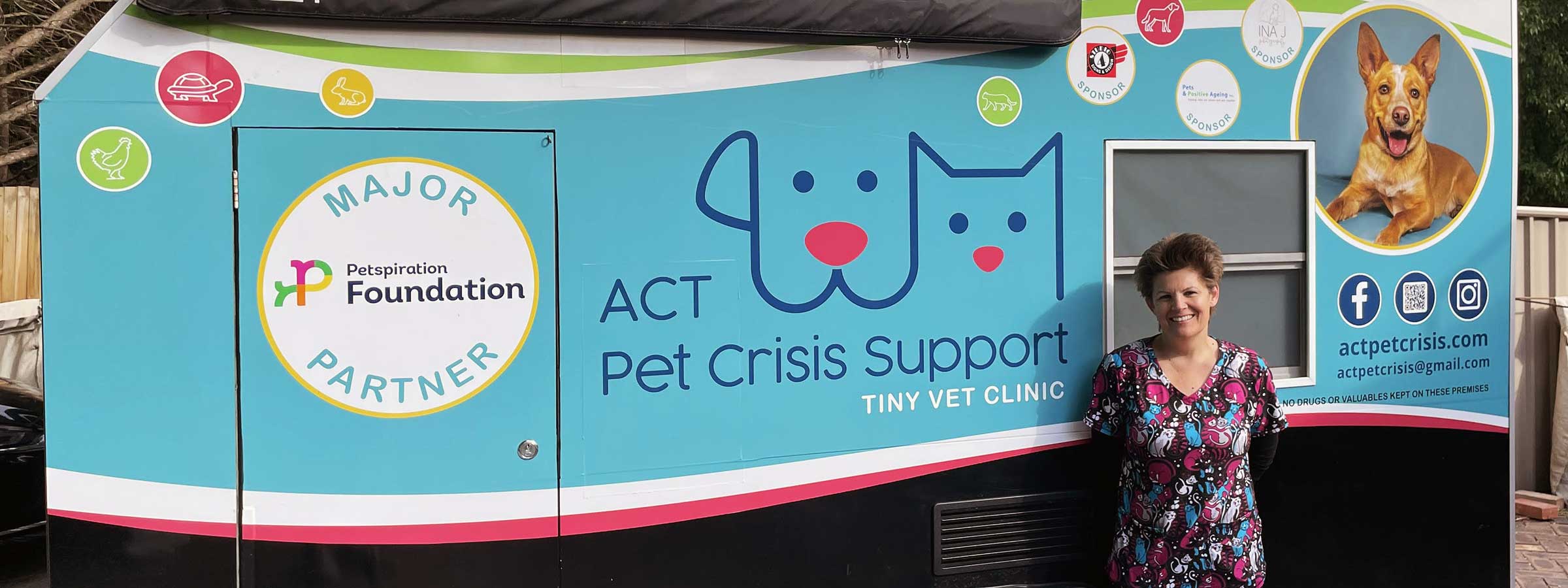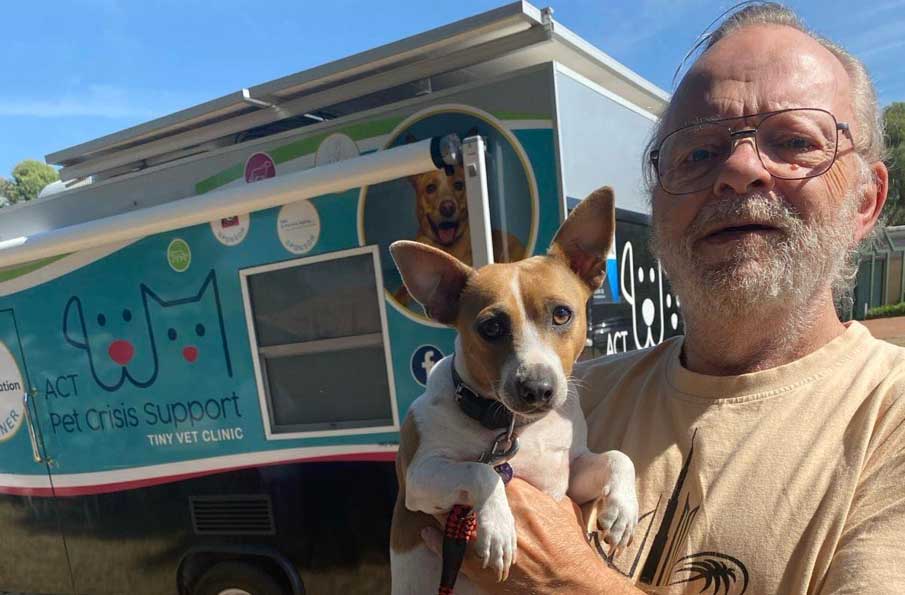
Tiny Vet Clinic making big impact on pet community wellbeing
Many people are socially isolated and their pet is their best friend and family member, sharing the most special bond. Sadly, in these tough economic times, many pet owners have to decide between eating or taking their pet to the vet.
“You shouldn’t have to be rich to have a pet,” says veterinarian Dr Eloise Bright from Canberra Behaviour Vet.
This is why Dr Bright started the charity ACT Pet Crisis Support to deliver essential veterinary services to vulnerable animals and their owners and avoid unnecessary suffering and euthanasia of beloved family pets.
Since 2019, ACT Pet Crisis Support has been providing subsidised vet care for disadvantaged, low-income pet owners who have no other options to care for their companion animals.
In March 2023, ACT Pet Crisis Support launched the innovative Tiny Vet Clinic, thought to be the first of its kind in Australia, operating from a converted second-hand caravan to bring veterinary services to pet owners who may have trouble accessing vet care due to lack of funds.
Within 12 months, the Tiny Vet Clinic helped more than 400 pets with essential treatments, vaccinations and surgical interventions.
“We have Medicare for humans so people are generally surprised how much vet care can cost,” said Dr Bright. “We have some regulars that attend for allergy treatment, arthritis injections or chronic ear infections. We get referrals from vet clinics when they see a pet owner who has no money and their pet has a chronic health condition, but also pet owners can just attend on the day or enquire on the website.”

Older pet owners
With the high cost of essential goods, basic necessities and medical care putting a significant strain on budgets, leaving people increasingly vulnerable, it’s no surprise older adults are a big part of the Tiny Vet Clinic demographic.
In fact, 2023 research by the COTA Federation shows almost half (45%) of older Australians believe things are getting worse for them mainly due to financial stress.
“Older pet owners also often have their own health issues that may make caring for a pet even more challenging,” said Dr Bright.
According to Companion Animal Network Australia’s Status of Pets in Aged Care survey, 40% of older adults who receive a Home Care Package have pets, yet only 9% of these pet owners receive pet care support, such as walking their dog (64% need help) and taking their pet to the vet (62% need help).
As Vice President of Pets and Positive Ageing (PAPA), an advocacy group that helps older pet owners, Dr Bright considers the issue of pets and ageing close to her heart.
“I've been involved in PAPA for 4 years and I strongly believe that pets are so good for our mental health and for older pet owners in particular, pets are often so important if they are living alone and socially isolated,” she said.
“There are a lot of old people who are lonely, and they’re putting off having a pet or they can’t afford to care for the pet they have.”
Dr Bright said she aims to expand Tiny Vet Clinic services to be able to do surgeries as well.
“We often see around three pets at each clinic that need something like desexing, lump removal surgery or x rays, which we currently can't perform. We are running a GoFundMe to expand our services.”
ACT Pet Crisis Support is also always on the lookout for volunteers to help disadvantaged pet owners. For more information, visit www.actpetcrisis.com
Subscribe to our Tales
Tales, the official blog of Australia CAN, is full of news from our network, updates on our advocacy efforts and heartwarming stories that celebrate the human-animal bond. Please enter your email address above so we can let you know when a new Tale has been published, and also occasionally send out other important announcements. Thanks for staying in touch!




